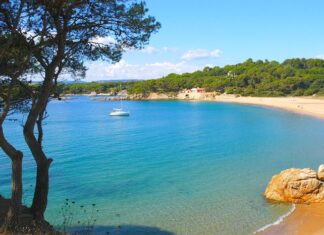38. I am aware that many chroniclers of his life will, in all probability, give an account differing from mine, for in his time false opinions prevailed. But I took part in these events myself and, besides that, I have acquired information of a more confidential character from men who were his intimate friends. My conclusions, therefore, are fair — unless someone is tempted to quarrel with my interpretation of things that I have myself seen and heard.
Maybe the greater part of my account will present the evil-natured with an opportunity to indulge in their idle chatter, but I do not believe that anyone will dispute the truth of what I am going to say now. It would take a long time to describe in full his various activities and measures in times of civil discord or foreign wars, but I will select one deed alone. I am referring to the struggle he waged against the barbarians. I will run over it in a brief summary.
39. The people of Bulgaria, after many vicissitudes of fortune and after frequent battles in the past, had become subjects of the Roman Empire . That prince of emperors, the famous Basil, had deliberately attacked their country and destroyed their power.
For some time the Bulgarians, being completely exhausted after pitting their strength against the might of the Romans, resigned themselves to defeat, but later they reverted to the old arrogance. There were no immediate signs of open revolt, however, until the appearance among them of a political agitator, when their policy at once became hostile to the Empire.**54
Practicing any deceit on his compatriots
40. The man who moved them to this folly was, in their opinion, a marvel. He was of their own race, member of a family unworthy of mention, but cunning, and capable of practising any deceit on his compatriots, a fellow called Dolianus. I do not know whether he inherited such a name from his father, or if he gave himself the name for an omen.**55 He knew that the whole nation was set on rebellion against the Romans; indeed, the revolt was merely a project only because no leader had hitherto risen up among them able to carry out their plans.
In the first place, therefore, he made himself conspicuous, proved his ability in council, demonstrated his skill in the conduct of war. Then, having won their approval by these qualities, it only remained for him to prove his own noble descent, in order to become the acknowledged leader of the Bulgarians. (It was their custom to recognize as leaders of the nation only men of royal blood.) Knowing this to be the national custom, he proceeded to trace his descent from the famous Samuel and his brother Aaron, who had ruled the whole nation as kings a short time before.
Read More about The Shipwreck of Simonides 2








